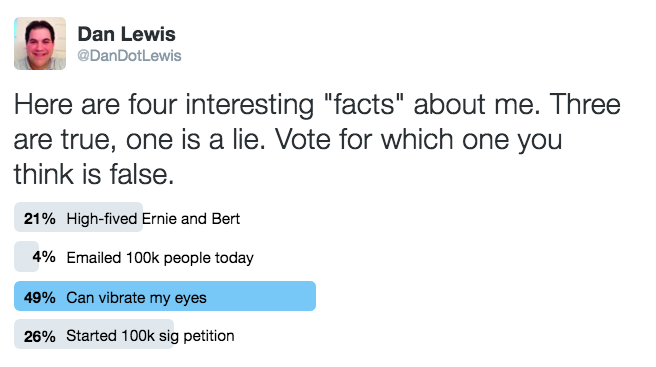The Weekender: March 25, 2016

1) “What Google Learned From Its Quest to Build the Perfect Team” (New York Times Magazine, 23 minutes, February 2016). Put ten geniuses in a room and you may not end up with a genuis idea — personalty conflicts may zero out the value of your team. On the other hand, get a bunch of not-as-smart people together who click and the result may be incredible. Google tried to figure out what makes teams click, and the result is one of those ah-ha moments where the result is intuitive and in retrospect, obvious.
As the researchers studied the groups, however, they noticed two behaviors that all the good teams generally shared. First, on the good teams, members spoke in roughly the same proportion, a phenomenon the researchers referred to as ‘‘equality in distribution of conversational turn-taking.’’ On some teams, everyone spoke during each task; on others, leadership shifted among teammates from assignment to assignment. But in each case, by the end of the day, everyone had spoken roughly the same amount. ‘‘As long as everyone got a chance to talk, the team did well,’’ Woolley said. ‘‘But if only one person or a small group spoke all the time, the collective intelligence declined.’’
Second, the good teams all had high ‘‘average social sensitivity’’ — a fancy way of saying they were skilled at intuiting how others felt based on their tone of voice, their expressions and other nonverbal cues. One of the easiest ways to gauge social sensitivity is to show someone photos of people’s eyes and ask him or her to describe what the people are thinking or feeling — an exam known as the Reading the Mind in the Eyes test. People on the more successful teams in Woolley’s experiment scored above average on the Reading the Mind in the Eyes test. They seemed to know when someone was feeling upset or left out. People on the ineffective teams, in contrast, scored below average. They seemed, as a group, to have less sensitivity toward their colleagues.
2) From yesterday: Yesterday, I posted a poll to my Twitter account with four “facts” about me, three of which were true and one of which was false. About 300 people voted, as seen below. The false fact? I’ve never high-fived Ernie and Bert. (I’ve never met Ernie. I have high-fived Bert.) For the explanation as to how I did the other ones, check out my personal homepage which I not-so-coincidentally redid on Wednesday night.

3) “Why Do We Work So Hard?” (1843 Magazine, 16 minutes, April/May 2016). “The problem is not that overworked professionals are all miserable. The problem is that they are not.” That’s crazy — but right. Work is supposed to be the means to afford happiness, but is it too often becoming a retreat from reality?
4) “Confessions of a Phony Telephone Psychic” (Narratively, 10 minutes, March 2016). The subhead tees it up: “When my family’s fortune suddenly went kaput, I discovered a talent for convincing unsuspecting saps that I can read the future. But when they started telling me their darkest fears, I was the one who got scared out of my mind.”
WeekenderAdUnits
5) “Game Theory for Parents” (Scientific America, 11 minutes, March 2016). The summary is wonky but to the point: “Using classic strategies from game theory, kids can learn to establish fair agreements on their own, without any intervention from a parent or other authority figure.”
Consider the pickup dilemma: Putting away the Legos, puzzles, costumes and My Little Pony collection that accumulate on the kids’ bedroom floor. (Where did we get all this stuff?) It’s time to clean up, but neither of your kids will budge. Each is waiting for the other to start. Cooperation seems as remote as kids asking for a handful of kale as an after-school snack.
Success in this kind of scenario typically comes only after siblings have negotiated repeatedly with one another over a period of years, honing their notion of what is fair. To get there, you need to put in place a variation on the game theory classic the Prisoner’s Dilemma, which we’ll call the Repeated (or Iterated) Prisoner’s Dilemma. In the Prisoner’s Dilemma, two prisoners are separated and given the option of confessing or saying nothing. If they both say nothing, they both get shorter sentences for a minor crime. If one confesses and the other doesn’t, the confessor goes free, and the other gets a longer term. If both confess, they get equal, intermediate sentences. Silence by both would be best for both—they would only get short sentences. But one of the first and most lasting achievements of game theory has been to show that both will always confess. Without knowing what the other will do, they have no choice. Each prisoner wants to guard against receiving a stiffer sentence.
In the Repeated Prisoner’s Dilemma, the two prisoners—or let’s say siblings—face the opportunity again and again to keep silent or tell on the other one (confess). Now the game becomes more interesting. Your son might choose to tell on your daughter; she might respond by telling on him, too. But if your son keeps silent, maybe the next time your daughter will offer him the same consideration in return. Why? Because she sees that kindness can be good for both of them. If we can get siblings started along this path, cooperation will most likely increase, with the good behavior of one reinforcing the other.
6) “The Bot Wars: why you can never buy concert tickets online” (New Statesman, 9 minutes, August 2013). This is a bit old, at least given how much technology has moved over the intervening time period, but it’s still basically true. Try and buy something online that’s first-come, first-served — concert tickets in particular — and there’s a very good chance that the item will be gone before you get a chance to hit “buy.” Here’s a look into the science behind getting there first.
Have a great weekend!
